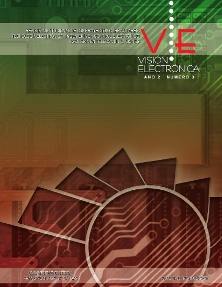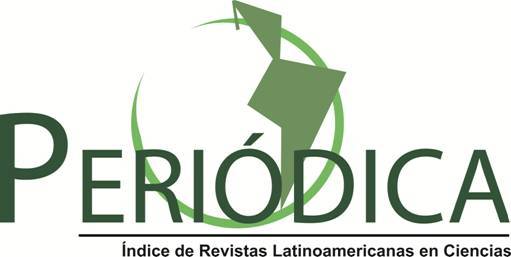DOI:
https://doi.org/10.14483/22484728.18417Publicado:
2019-03-13Número:
Vol. 2 Núm. 1 (2019): Edición especialSección:
Visión de CasoHorizontal cooperation architecture used in development of mobile applications: logistics processes at textile sector case
Arquitectura de cooperación horizontal en desarrollo de aplicaciones móviles: procesos logísticos en el caso del sector textil
Palabras clave:
Costos, Comercio electrónico, Colaboración horizontal, Operador logístico, Logística, PYME (es).Palabras clave:
Costs, E-commerce, Horizontal collaboration, Logistical operator, Logistics, SME (en).Descargas
Resumen (en)
The present article describes the design and prototyping processes carried out to develop a mobile application using horizontal collaboration architecture for e-commerce. Said application is meant to be used by SMEs in the textile sector in order to facilitate transportation-related logistics by collecting information. Hence, costs are reduced for the end customer by delivering goods via a unified logistics provider.
Resumen (es)
El presente artículo describe los procesos de diseño y creación de prototipos llevados a cabo para desarrollar una aplicación móvil utilizando la arquitectura de colaboración horizontal para el comercio electrónico. Dicha aplicación está destinada a ser utilizada por las PYME en el sector textil con el fin de facilitar la logística relacionada con el transporte mediante la recopilación de información. En consecuencia, los costos se reducen para el cliente final al entregar productos a través de un proveedor de logística unificado.
Referencias
P. Molina, “DEL KNOCK OUT AL WIN – WIN#. Available en: http://www.betlatam.com/del-knock-out-al-win-win/
O. A. Ibrahim, “Will Insta-Business be the Electronic Contemporary Bazaar ?: An Exploratory Analysis on Electronic Commerce in Kuwait”. The_role_of_business_enviro, 1–6.
Ventajas y desventajas del comercio electrónico. Available en: https://www.actualidadecommerce.com/ventajas-y-desventajas-del-ecommerce-frente-al-comercio-tradicional/
L. Morales, J. Bernal, M. Vargas, Interoperability as a Service in Colombia, (December), pp. 66–72, 2015.
E. E. Quiñones-Bolaños, C. F. Bustillo-Lecompte, M. Mehrvar, “A traffic noise model for road intersections in the city of Cartagena de Indias, Colombia. Transportation Research Part D: Transport and Environment, 47(Supplement C), pp. 149–161, 2016. https://doi.org/10.1016/j.trd.2016.05.007
C. Martínez, W. Piña, “Regional analysis across Colombian departments: a non-parametric study of energy use”, Journal of Cleaner Production, 115, 130–138. https://doi.org/10.1016/j.jclepro.2015.12.019
UPF Barcelona School of Management. ¿Qué es e-commerce o comercio electrónico? Available en: https://marketingdigital.bsm.upf.edu/e-commerce-comercio-electronico/
I. Busom, J. Vélez-Ospina, “Innovation, Public Support, and Productivity in Colombia”, A Cross-industry Comparison. World Development, 99(Supplement C), 75–94, 2017. https://doi.org/10.1016/j.worlddev.2017.07.005
Perfil Logístico de Colombia – Sector textil y confecciones. Recovered el 21 de november de 2018. Available en: http://repository.urosario.edu.co/flexpaper/handle/10336/8983/1018441127-2014.pdf?sequence=7&isAllowed=y
A. Ghanmi, B. Campbell, T. Gibbons, “Modeling and simulation of multinational intra-theatre logistics distribution”,2008. https://doi.org/10.1109/WSC.2008.4736185
Tarazona, G. M., Diaz Rojas, D., & Pablo, V. (2012). E-commerce model for the interaction of the links in the supply chain of the textile sector in Bogota Colombia. 2012.
Jiang, Y., Zhang, Z., Wang, Z., & Sun, H. A Mechanism of Information for Collaborative, (2010038), 43–46, 2011.
Chen, L. L. (1994). The welfare effects of bilateral free trade between the United States and Colombia in textiles and apparel. The North American Journal of Economics and Finance, 5(1), 39–54. http://doi.org/10.1016/1062-9408(94)90012-4
Fields, D. A., Searle, K. A., & Kafai, Y. B. (2016). Deconstruction Kits for Learning: Students’ Collaborative Debugging of Electronic Textile Designs. In Proceedings of the 6th Annual Conference on Creativity and Fabrication in Education (pp. 82–85). New York, NY, USA: ACM. http://doi.org/10.1145/3003397.3003410
Guo, X., Zheng, X., Ling, L., & Yang, C. (2014). Online coopetition between hotels and online travel agencies: From the perspective of cash back after stay. Tourism Management Perspectives, 12, 104–112. http://doi.org/10.1016/j.tmp.2014.09.005
Urrea Camargo, J. El e-commerce como herramienta de internacionalización y fomento de la industria colombiana artisana. Retrieved April 8, 2013.
Cámara de Comercio de Bogotá. Caracterización de las Cadenas Productivas de Manufactura y Servicios en Bogotá y Cundinamarca, 2005.
de Souza, R., Goh, M., Lau, H.-C., Ng, W.-S., & Tan, P.-S. (2014). Collaborative Urban Logistics – Synchronizing the Last Mile a Singapore Research Perspective. Procedia - Social and Behavioral Sciences, 125, 422–431. http://doi.org/10.1016/j.sbspro.2014.01.1485
Guajardo, M., & Rönnqvist, M. (2015). Operations research models for coalition structure in collaborative logistics. European Journal of Operational Research, 240(1), 147–159. http://doi.org/10.1016/j.ejor.2014.06.015
Ronald, N., Yang, J., & Thompson, R. G. (2016). Exploring Co-Modality Using On-Demand Transport Systems. Transportation Research Procedia, 12(June 2015), 203–212. http://doi.org/10.1016/j.trpro.2016.02.059
IBRD. (2014). Global Rankings 2014 | Logistics Performance Index. Retrieved March 10, 2016, from http://lpi.worldbank.org/international/global
Palhazi Cuervo, D., Vanovermeire, C., & Sörensen, K. (2016). Determining collaborative profits in coalitions formed by two partners with varying characteristics. Transportation Research Part C: Emerging Technologies. http://doi.org/10.1016/j.trc.2015.12.011
Tumibay, G. M., Layug, F. T., Yap, D. S., & Sembrano, M. S. M. Increasing the Value of Farm Products: Connecting Farmers and Consumers Through an E-commerce System. In Proceedings of the 18th Annual International Conference on Electronic Commerce: E-Commerce in Smart Connected World (p. 5:1--5:5). New York, NY, USA: ACM. 2016. http://doi.org/10.1145/2971603.2971608
Ley número 79. Available en: http://leycooperativa.co/leycooperativa/index.php/tributaria/leyes/83-leyes-de-1988/563-ley-79-de-1988
Ley 454 de 1998. Available en: http://www.secretariasenado.gov.co/senado/basedoc/ley_0454_1998.html
Zeleti, F. A., & Ojo, A. (2016). Critical Factors for Dynamic Capabilities in Open Government Data Enabled Organizations. In Proceedings of the 17th International Digital Government Research Conference on Digital Government Research (pp. 86–96). New York, NY, USA: ACM. http://doi.org/10.1145/2912160.2912164
Kohlen, J., & Holotiuk, F. (2017). Consulting Firms Under the Influence of Digitalization: The Need for Greater Organizational Agility. In Proceedings of the 2017 ACM SIGMIS Conference on Computers and People Research (pp. 175–176). New York, NY, USA: ACM. http://doi.org/10.1145/3084381.3084421
Opencart. (2017). OpenCart - Open Source Shopping Cart Solution. Retrieved April 20, 2016, from http://www.opencart.com/
Magento. (2016). User Guide (Magento In). Retrieved from www.magento.com
Prestashop. (2016). PrestaShop e-commerce gratis, open-source comercio electrónico software. Retrieved from http://www.prestashop.com/
Treeratpituk, P., Khabsa, M., & Giles, C. L. (2015). Automatically Generating a Concept Hierarchy with Graphs. In Proceedings of the 15th ACM/IEEE-CS Joint Conference on Digital Libraries (pp. 265–266). New York, NY, USA: ACM. http://doi.org/10.1145/2756406.2756967
Wang, P.-Y., & Yang, H.-C. (2012). Using collaborative filtering to support college students’ use of online forum for English learning. Computers & Education, 59(2), 628–637. http://doi.org/10.1016/j.compedu.2012.02.007
Cataldi, M., Torino, U., & Sapino, M. L. (2010). ANITA : A Narrative Interpretation of Taxonomies for Their Adaptation to Text Collections. Proceedings of the 2010 International Conference on Management of Data - SIGMOD ’10, 1781–1784.
Ginat, D., & Menashe, E. (2015). SOLO Taxonomy for Assessing Novices’ Algorithmic Design. In Proceedings of the 46th ACM Technical Symposium on Computer Science Education (pp. 452–457). New York, NY, USA: ACM. http://doi.org/10.1145/2676723.2677311
Dietz, E.-A., Vandic, D., & Frasincar, F. (2012). TaxoLearn: A Semantic Approach to Domain Taxonomy Learning. 2012 IEEE/WIC/ACM International Conferences on Web Intelligence and Intelligent Agent Technology, 58–65. http://doi.org/10.1109/WI-IAT.2012.129
Noy, F. & McGuinness, D. (2001). Ontology Development 101: A Guide to Creating Your First Ontology. Stanford University, Stanford, CA
Henderson-Sellers, B. (2011). Bridging metamodels and ontologies in software engineering. Journal of Systems and Software, 84(2), 301–313.
Kahani, N., Bagherzadeh, M., Dingel, J., & Cordy, J. R. (2016). The Problems with Eclipse Modeling Tools: A Topic Analysis of Eclipse Forums. In Proceedings of the ACM/IEEE 19th International Conference on Model Driven Engineering Languages and Systems (pp. 227–237). New York, NY, USA: ACM. http://doi.org/10.1145/2976767.2976773
Benelallam, A., Tisi, M., Cuadrado, J. S., de Lara, J., & Cabot, J. (2016). Efficient Model Partitioning for Distributed Model Transformations. In Proceedings of the 2016 ACM SIGPLAN International Conference on Software Language Engineering (pp. 226–238). New York, NY, USA: ACM. http://doi.org/10.1145/2997364.2997385
Cómo citar
APA
ACM
ACS
ABNT
Chicago
Harvard
IEEE
MLA
Turabian
Vancouver
Descargar cita
Licencia
Derechos de autor 2019 Visión electrónica

Esta obra está bajo una licencia internacional Creative Commons Atribución-NoComercial 4.0.
.png)
atribución- no comercial 4.0 International






.jpg)





